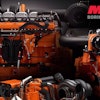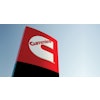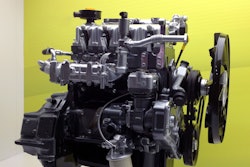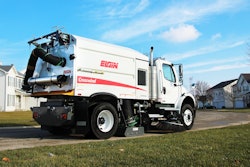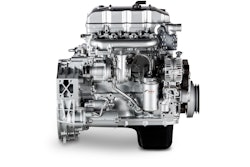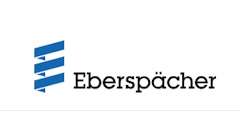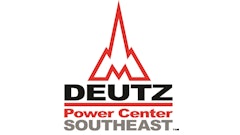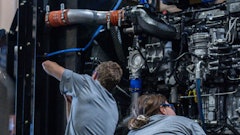Westport Fuel Systems Inc. announces that it has entered into a development and supply agreement with Tata Motors Limited for its 4 cylinder and 6 cylinder natural gas spark-ignited commercial vehicle engine family to meet the Indian Government’s new Bharat Stage VI (BS-VI) emission standards, scheduled to take effect in April of 2020.
Westport Fuel Systems has been working with Tata Motors since 2012, and has partnered to develop and launch its current BS-IV certified natural gas spark-ignited engines for commercial vehicles. Under this new program, since spring 2017, Westport Fuel Systems has been developing its next generation of natural gas spark-ignited engines to meet the BS-VI emission standards. Upon completion of the program, Westport Fuel Systems will be supplying the critical natural gas components to Tata Motors, including advanced gas injection systems and controls, featuring the new Westport WP582 Engine Management System, built to optimize the overall engine performance and fuel efficiency.
“Tata Motors is a leader in heavy duty natural gas vehicles in the Indian market and a leading vehicle and engine manufacturer globally,” says Maurizio Grando, Executive Vice President of Westport Fuel Systems. “Our longstanding partnership combined with our position as a technology leader and our global footprint allows us to commercialize unique natural gas engine technologies that provide a competitive solution for our OEM partner.”
“Tata Motors values the partnership with Westport Fuel Systems on this important engine development program,” says Rajendra Petkar, VP & Head (Power Systems Engineering, ERC) of Tata Motors. “We have worked hard to build a leadership position in the market by providing our customers with economical, best-in-class natural gas engine and vehicle products. Tata Motors remains committed to this goal, especially with the growing significance of natural gas for commercial vehicles. By partnering with Westport Fuel Systems, we are enhancing our portfolio of natural gas engines so we can focus on increasing our market share even further."
BS-VI standards, which are equivalent to Euro-VI standards, are two steps ahead of the BS-IV standards currently in effect due to a heightened concern on India’s air quality levels. Recent rules enacted in Delhi and the National Capital Region place limits on diesel and petrol vehicles while mandating natural gas for commercial vehicles such as taxis and city buses. Significant environmental benefits of the BS-VI over BS-IV include about an 87% reduction in tail pipe NOx emissions and 55% reduction in methane emissions beside stringency required by on-board diagnostics standard.
India is one of the world's largest commercial vehicles markets. According to NGV Global statistics, India currently has more than 3 million natural gas powered vehicles, up 69% since last year, with over 1,200 compressed natural gas fueling stations. In addition, recently the Ministry for Road Transportation and Highways approved plans to develop liquefied natural gas fueling stations across the country.
